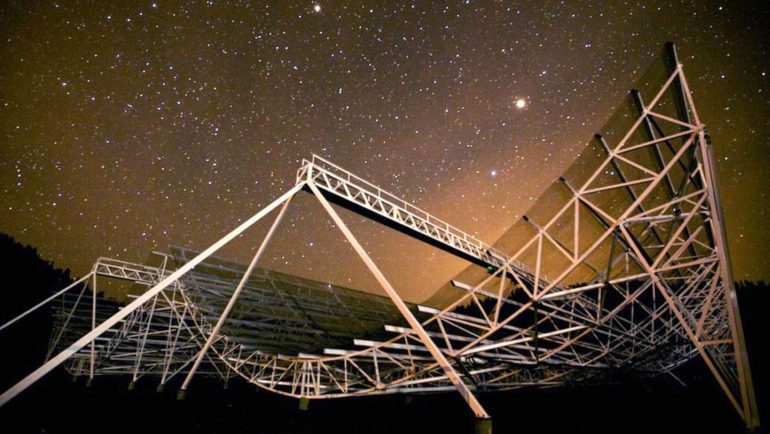Canadian researchers have found strange signals from deep space with a radio telescope. You can only guess about the source.
An unusual radio signal from a galaxy far, far away has puzzled astronomers. The signal was discovered by a group of Canadian and American researchers using the Chime Radio Telescope in western Canada. Scientists use tools to search for so-called fast radio bursts—extremely high-energy radiation bursts that, according to current knowledge, last a maximum of a few milliseconds. However, the signal now received lasted for more than three seconds, that is, about 1,000 times longer than normal – and this is not the only special feature of the discovery.
“Within those three seconds, there were spikes of radiation that occurred every few milliseconds with impressive regularity,” says MIT astronomer Daniele Michili. “Like a heartbeat, thump, thump, thump. This is the first time we’ve got such a recurring signal.” The signal traveled several billion light years on its way to Earth, and researchers can only speculate about its source.
Radio signal could help measure the universe
“There are not many objects in the universe that emit regularly recurring signals,” explains Daniele Michili. “For example, we know from our Milky Way pulsars and magnetars, which spin very quickly and emit bundled radiation like a lighthouse. So this new signal may come from a hyperactive pulsar or magnetar.” Researchers now expect to receive a more regular signal from the source. The signals can act like clockwork and help astronomers, for example, to precisely measure the expansion of the universe.
“This discovery raises the question of where exactly this signal comes from and how we can use it for further space exploration,” says Daniele Michili. “In the future, telescopes may capture thousands of fast radio bursts each month, and then we will find many more of these regularly recurring signals.”

Web guru. Amateur thinker. Unapologetic problem solver. Zombie expert. Hipster-friendly travel geek. Social mediaholic.





